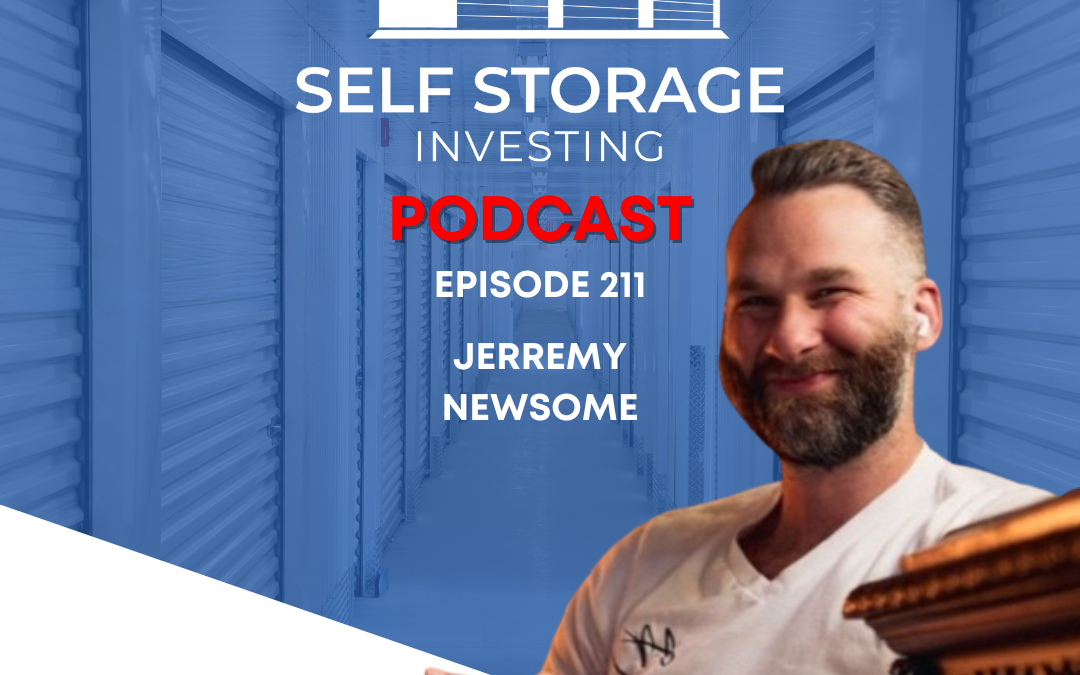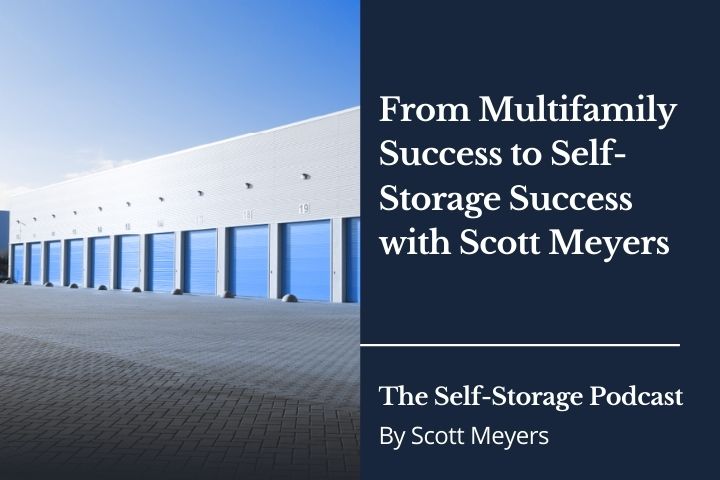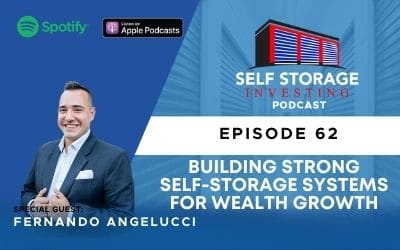What can a 12-year-old inspired by Forrest Gump teach us about investing, resilience, and building wealth?
Scott welcomes investor Jerremy Newsome to share his fascinating journey—from cashing in on Apple stock as a child to navigating tough lessons like losing it all, and finally, to building a multi-faceted investment empire.
Jerremy opens up about his strategies, from stock market mastery to bourbon barrels, and how he uses connection, clarity, and giving as his guiding principles.
Whether you’re a self-storage pro or exploring other asset classes, this episode is packed with insights that will inspire and energize your financial journey.
WHAT TO LISTEN FOR
05:21 – “You can’t trust a person who hasn’t lost it all”
09:48 – Breaking free by defining financial freedom
13:45 – Why ultimate clarity is the cheat code to wealth
20:01 – The abundance mindset: “The more you give, the more you are given”
Leave a positive rating for this podcast with one click
GUEST: JERREMY NEWSOME
LinkedIn | Website | YouTube | Instagram | Books
CONNECT WITH US
Website | You Tube | Facebook | X | LinkedIn | Instagram
Follow so you never miss a NEW episode! Leave us an honest rating and review on Apple or Spotify.
Episode Transcript
Announcer (00:03):
This is the Self Storage Podcast with the original Self storage expert, Scott Meyers.
Scott Meyers (00:12):
Hello everyone, and welcome back to the Self Storage Podcast. I’m your host, Scott Meyers, and we have a special episode today because I have a special guest alongside of me. I have none other than that, Jerremy Alexander Newsome, good friend of mine, investor extraordinaire. He came out and spent some time away from family and friends, which we are all thankful for, to talk about his investor journey, what he’s investing in right now. And of course, at the Self Storage Mastermind, we talk about investing in self storage, but our members want to see what other folks are doing in other asset classes, hard assets, and just other ways and angles to be able to look at to the investing environment both personally and not professionally. And Jerremy’s story is absolutely incredible. He and I were able to spend a little bit of time together in another group that we’re involved in, and when I heard him speak, and as our friendship has evolved in our relationship since then, I was just like, we got to get some other folks involved with what Jerremy’s got, because the energy that he brings to the room and to his business and to his family is just infectious.
(01:07):
And so I wanted to share him with you, storage Nation. So with that, welcome to the podcast
Jerremy Newsome (01:12):
Storage Nation. I love it. Thanks, man.
Scott Meyers (01:15):
Tell us about your story Share with Storage Nation, how you got to the place where you are right now, the investor journey, if you will.
Jerremy Newsome (01:22):
Yeah, yeah. So my investor journey is mostly stock market related. That’s been the very, very main primary focus. And it started in 1995. I watched the movie Forest Gump. He says that Lieutenant Dan invest into a fruit company. They don’t have to worry about money ever again. And hearing that, I’m excited, I’m enthused, and I ask my dad, what’s investing? What’s the fruit company? He tells me about Apple computers. And so I beg him to buy some shares and we eventually buy some shares, and that’s the rock bottom, the lowest of the low in 1995. We sell those shares in 2000 because we were moving from Georgia to Florida. And so we made $12,000 to a 12-year-old. That’s a million dollars. And from then I knew I wanted to figure out some way to interact more with the stock market. So that’s been my initial journey of learning the stock market, understanding how to buy assets into companies.
(02:19):
So the way I think about it is, me and you are really good at business, but I’m not Tim Cook good to the point of Apple and video, Google, Tesla. These companies are making millions of dollars of net profit every hour. Apple does $90 million net an hour. So that’s an unbelievable amount of money to me. So I’m over here thinking to myself, I’m just going to give my money to those guys and let them grow it for me. And so that has really worked out well. But to your point, sticks and bricks, it never goes away. So I take money from the Ethereal AKA, the liquid markets. If I make a profit, which I have every year, thankfully, take the profits and then I go buy something physical. I started, my very first condo purchase was in Gainesville, Florida in 2009. So I bought it the exact bottom, ended up selling that, and then started buying some houses in Georgia, bought some houses in Tennessee. So I started a single family and then just reading a bunch of books,
(03:17):
Studying and learning. And so right now at this exact stage, I will invest into pretty much anything. My appetite is, is it exciting, is it unique? Is it cool, and is it safe? And if those things are big yeses. And then now with self storage, is it boring? Yeah, it’s like it is. Oh wow. But it’s really profitable. I love when those things come together because that means if I know something is certain, I can put a lot of risk capital towards certainty. I’m not actually someone who goes, oh, I’m going to 10 x this investment, lemme put all my eggs into that basket. It’s like, no, no, no. I’m going to put all of mags into the basket. Or I get a 30% return a year for sure.
Scott Meyers (03:58):
That’s my focus.
Jerremy Newsome (03:59):
Yeah,
Scott Meyers (04:01):
There’s so many folks that when I was investing in the stock market early on, before I began investing in it in real estate, I was maxing out my 401k and I was learning everything I could from Peter Lynch. I was going back a few years. So buying everything that he came out with and following him and he said, you got to pay attention. I pay attention to what my kids are interested in and whatever’s hot and new, I can pretty much expect that the value of that stock is going to go up if that company isn’t doing things. And those are the things that I invest in. And so he invested in things that he likes, but mostly what his kids liked. So I think that’s a valuable piece of advice, is to invest in things that you’re interested in so that if you are, chances are other folks are as well. And then along the way, I recognize that once I lost everything and in Wall Street and the crash of 99, I did get the benefit of selling the company that I worked for that I maxed out my 401k in. Well, they were in tech and the tech bubble burst and I was left holding the bag. And so I thought, I’m not going to let that happen again. And that’s when I started investing in hard assets. So tell me about some of the hard lessons that you’ve learned along the way and the journey.
Jerremy Newsome (05:12):
How long is this podcast again, here’s what I love, man. I have a business partner, her name is Bernie Turner, and she said she’ll never do business with someone who hasn’t lost it all.
Scott Meyers (05:21):
Sound advice,
Jerremy Newsome (05:23):
And I’ve lost it all. Apparently I’m a geologist. I love rock bottom. I’ve been there three or four different times in my life and I’m never going to go back again. But I’m not scared of it. I approached this situation where if I can calculate my risk, then I will invest into that thing. So the biggest one, the one that hurt me the most, I mean spiritually, emotionally, physically, is I was in business with my nephew. I was 26, he was 23. We were on top of the world. We had a bunch of money into a bunch of different things. We had businesses, we had farms, we had farm equipment. We were about to buy 16,000 acres in Georgia,
(06:03):
And we were doing all this with a handshake and a high five we’re best friends. The guy that we were going to buy the land from, he goes, so wait a minute. You guys don’t have a business. You don’t have an LC. Do you have key man insurance? What are you doing? And we’re like, we don’t know. We didn’t know anything. So this guy was going to owner or finance his 16,000 acres, and he was walking us through all these things that we needed to do to be more legitimate. That was a Friday. Donovan dies Saturday and he dies in a wakeboarding accident. And so it was obviously extremely tragic, and the fact is everything was in his name. And so all the businesses, all things, because essentially what happened is we were using his annuity money. He had annuity money. He was born premature.
(06:47):
One of the nurses spill boiling water on him when he was in the nicu. They stood the hospital, they won it. It wasn’t that bad of a scar truthfully, but he got burned. They sued the hospital, they won. They took all that money put into annuity at zero. And so when he was 21, 22, it was worth millions. And so that’s the money that we were using to fund all these investments. But everything was in his name and there was no business, there was no contracts. That was the big one. But again, to the point of what is the lesson, right? Everything happens either to us or for us.
(07:17):
And if we say it’s to us, you’re going to be a victim a lot in life. Everything’s, it is the boss, it’s the government, it’s Trump, it’s Biden, it’s someone it you go, okay, whatever this lesson is as tragic, as tough, as hard as it is, there has to be something for me to learn in this. And that one is, do your due diligence, create legal structures so that no longer is it maybe my memory fades, maybe your memory fades. Maybe we forget one particular detail. Maybe you get into an accident. Everything needs to be legal, it needs to be structured, it needs to be written out. That’s absolutely okay. But that’s a great lesson to learn at 26.
Scott Meyers (07:56):
Every one of our masterminds without a particular theme kind of develops a theme. And part of that is persistence and not talking about how just because you had a failure or failure in one area of your business or one deal, doesn’t mean that you are a failure. And so yes, things can either happen then to us and we say, oh, I’m not going to do that again. I quit, either go back and get my job or never quit my job. Or you could say, that happened for us. And then it’s like lesson learned, not going to do that again. And we become stronger as a result of it. And then the worst case scenario, to take that a step further, is what William talked about to our Navy seal friend when he shared with us the man in the arena and those poor timid souls who’d never even get up and go up and fight and then end up in a rocking chair on the porch in their nineties and saying, I probably should have, I could have what would’ve happened if I would’ve. And so the lesson in all of that that we all need to learn is that there we make, that may end up turning into a very difficult experience or a difficult season. At the end of the day, that doesn’t define us, and it only makes us so stronger going on.
Jerremy Newsome (09:03):
Amen.
Scott Meyers (09:04):
What I like about hug, Jerremy, is that, well, I like so many things about you. Thanks, bro. You are the uber opportunistic investor
(09:13):
And entrepreneur. You are an opportunist, and that’s what I love. Many of us. Everybody says, need to get rich in a niche. And I kind of follow that, and we preach that to a degree. I invested in all forms of real estate and I found sell storage, and now that’s all I do. But you and I are looking to do some business together and something completely out of the real estate circles, let alone the real estate projects that we’re going to work on together as well. But you’ve made a career, an investing career up to this point out of just being opportunistic and looking at different asset classes and other investments. It’s got to be freeing to have it mindset
Jerremy Newsome (09:48):
Fun. It’s fun. Well, so here’s how it starts. It starts with you got to go with the end all the way to the end. What am I doing all this for? And you preach this. I mean, you’ve got it right here in one of your workbooks. It’s like, what are your numbers? What are you trying to hit? And so that you can start reverse engineering things. And so when I created the end in mind of this is what I want to do, this is how much finance freedom costs, which at the time was $40,000 a month. So if I can hit $40,000 a month, I can have this, I can donate this, I can provide this, I can help this. And so then I go, I look at someone brings an Airbnb, someone brings a wedding venue, and I can look at both of those and go, all right, well, here’s the number.
(10:24):
If I can invest amount of money into both of these two things and I can go get some friends, they put in some money. The deal bringer gives me a little bit of an ownership slice. So now I have some money in the deal and I have an ownership slice and I can get this amount of month, monthly check from an Airbnb, and I get this amount of monthly check from a wedding venue. I just do the math, do the numbers, get clear, get certainty. Most people don’t act because they have uncertainty. They’re just afraid of the unknown. If you can figure out, even if your worst case scenario, go live in worst case scenario, ask yourself what it is. Ask yourself how it feels. What do you actually experience in worst case scenario, figure out it’s probably not that bad. Reverse engineer yourself out of it and just go, here’s all the numbers that are needed to facilitate my life the best, the most.
(11:12):
And then act on it. Right? Act on it. There’s a really cool game you’ve played a million times cashflow, right? Start your kids early. Folks, if you’re listening to this and you haven’t played cashflow, it will change your life. It will 100% because you start looking at it from a math perspective. Wealth is second grade math equation. It’s financial freedom is an equation, Scott, and you teach the equation perfectly. But as for me, the opportunistic portion of it is I love circulating currency and I began to change where if I do a bad deal or I do a bad trade, I’m not losing money. I’m giving it to someone else who outplayed me. Someone’s making money on this transaction. It’s just not me.
Scott Meyers (11:56):
Yeah, we give it up to the markets or our competition one. The two
Jerremy Newsome (11:59):
Precisely.
Scott Meyers (12:01):
One thing I wanted to add on to that before we move on, and that is I appreciate you changing the mindset of our folks here, or at least getting in to think about terms of, well, what is the end goal? Define that. What is financial freedom? What is that monthly number? And some of these folks may have thought about that, but I think most everybody in here feels like, I’m going to continue to roll the profits and I’m going to continue to do this, and I’m going to be on, I mean, this isn’t a hamster wheel because it’s our own business. We get to do this. But I think many of these folks, even if they’re in their own business, they’re still an employee of their own business and they feel like they have to continue to roll and they have to produce and produce and produce. And then when I get tired, we’ll see how much money we have at the end of it. Instead of thinking, I’m going to draw the line of sand, it’s 40 grand a month, it’s 20 grand a month, it’s a hundred grand a month. And then move fast to get there and then pull back and say, I did it and now I’m in my forties, I’m in my fifties, and I got to be able to do what I do. I don’t think too many people adopt that mindset.
Jerremy Newsome (12:59):
I believe you’re correct because a lot of times the word retirement gets thrown around, but the word retirement also for a lot of people is kind of terrifying because they don’t have a clear vision of what that is. Retirement to a lot of people like playing golf and watching tv, which means they don’t actually want to retire. So then they have this mysterious word that looms over them where they’re not really sure where they’re going. Ultimate clarity is the absolute biggest power and cheat code to abundance because the universe will make way for anyone who knows exactly where they’re going. If you have crazy, crazy clarity, you can do that exact direction, you can go there. And that’s how I operate every single deal. I just need to know anything that I’m getting into. Who are the people that I’m investing with? What are the opportunities in the deal?
(13:45):
Do I know what the deal is? Can I understand it? Do I use it? If I don’t use it? And this is a great example, I won’t invest in it. Mobile home parks, they crush, right? From a return standpoint, they’re amazing. I never lived in a mobile home trip. I never lived in a trailer park. So guess what? I don’t invest in trailer parks, but I go, I love RV parks, I love those things. I have an rv, me and my mom, we’ll drive, go state an RV park, love it. Have a great experience. I want to invest in RV parks. The only reason to date that I’ve invested into storage is because I don’t have a storage facility. I’ve never put anything into storage in my life. So the more I interact with the things of my life where I go, this is the things that I truly, truly know a lot about, I’m just going to invest in those.
Scott Meyers (14:30):
Yeah,
Jerremy Newsome (14:30):
It works
Scott Meyers (14:31):
Out well. There is, retirement is something that we created as a society, retirement gotten in the Bible, and that there really isn’t a clear definition of what a retirement is. And so I’m going to slow down al that got asked of me at some point, and as long as I have ear in my lungs, I’ll continue to contribute. And then I think I’ll know when I know.
(14:51):
But that with that in mind, storage is certainly on the radar. Some of the things that you and I are going to be doing is definitely on the radar, but now by now people are call me wondering what is it that Jerremy does and why is he here if he’s not investing in self storage. So what do you do, Jerremy? Tell me what life looks like. I mean, you’re a family man. You spend time, I mean, you’ve carved out a lifestyle, you’ve carved out a way to be able to generate revenue so you can some time with your family. So tell us that design and that plan, what you
Jerremy Newsome (15:20):
Do. So the two things I do the most right now, so let’s just say generate cash flow to generate revenue. I interact with the stock market every day, every week. A lot of your listeners may or may not know this, but I’ll throw this out there. I rent out stocks just like you rent out a house. So if you own enough shares, you can sell those shares and get paid to sell your shares at a higher price, which is a strategy called covered calls. And so my goal is I will want to go buy the most amount of shares I can of a company that I really incompetent is going to go higher over time, and then I’ll rent it out and I receive cashflow to sell my stock at a higher price, and I will concentrate a lot of eggs into a one individual basket. Use that basket. Looks a lot like Tesla, buy a lot of Tesla rent out and on a thousand shares of Tesla, for example, which I mean, that’s a 300 ish thousand dollars investment. You can make $12,000 a month off of that cashflow, pure and easy. But that is one of the things I do is interact with the stock market a lot and bring in cashflow that way. But the second thing, and the one that really brings me the most amount of money in my life is connections. So I’ll explain.
(16:30):
I have a communication network. I talk to people and I find out, wow, this guy named Andrew owns a fund and this fund has a billion dollars of assets under management. I go, oh, that’s incredible. What do you guys invest in? And he tells me what you invest in? I go, do you want more deals? And he goes, yeah, I’d love to take, we have $200 million of money that’s right now just sitting in the bank, not going to work, not being deployed. Here’s the type of deals I’m looking for. Then I go, dope. And I go look for those deals just by talking to people. And I go, oh, wow, you want a lot of multifamily or music rights? People love buying music royalties. So I go and try to talk to people and have communication just simply to find out who they are, what they do, what they offer. And then if I find a deal, I bring these two people together and I take a percentage of that deal and I go, listen, you guys do business together. If you invest 200 million into his thing, I want one to two to 3% of that transaction cost. And so ultimately making millions of dollars with phone calls is how I make most of my money.
Scott Meyers (17:32):
Well, I know of no better person to you be successful with that than you. I mean, you’re incredible networker, incredible communicator. You’re relational. That is one of the pieces That is one things that came up as we’re doing our planning for this year that I’m going to lean into more is relationships. And we talk about, and we read the book Who Not How, and I’ve seen it lived out and I need to do it more. And I think we all need to take a cue from that book and just being able to do that because it is about who and the level of relationship and access that you have to people that makes it frictionless for business to be done.
Jerremy Newsome (18:08):
Agreed. And so this is a fun one too, to your point, it’s about who, and it’s also about who knows you, right? What do you stand for? What type of person are you? And anyone who interacts with me in a business, what they will very, very quickly understand is I operate in an abundance frequency where I always give, I always circulate. If a random girl that I’ve never met before in my life sends me a deal and I end up doing business with that deal, I will track that person down on Instagram, Twitter, or Facebook so I can send her a check. I always pay source. I always make sure that money is circulated. I make sure that anyone who comes into business with me that everyone eats, everyone’s taken care of, because that’s the abundance mindsets. There’s plenty to go around. I do not operate at all in a agreed state.
(18:47):
I want to make money for everybody. And if everyone’s making money, everyone’s happy. We all high Five, because money expands the heart, it’s expands into the heart. And I know for a fact that all the people that are around you, all the people that are around me, the people I interact with, if they have more money, they’re going to give more to their churches. They’re going to give more to their communities, they’re going to give more to their kids. They’re going to buy presents, they’re going to donate, they’re going to get a plaque at the zoo. They’re really going to give more. And when you start embodying that and people know you for that level of integrity, you will always give more opportunities anyway.
Scott Meyers (19:23):
I dunno if it’s a journey that everybody goes on, but I think that just happens, that wisdom comes later in life after you’ve been through a few subs economic cycle with investment cycles that recognize, well, all that time when I was protecting everything and keeping my cards close to my vest, and I don’t want to have partners, and I don’t want to bring partners in and I don’t want to share. You look at the folks in the community, even in self storage, if we can’t help a client, somebody that comes into our facility because we’re on a 10 by 10 and they really can’t do a five by five and they can’t afford to do a 10 by 20, we will call our friendly competitors and say, Hey, Jane’s going to come over. You got a 10 by 10, really, really needs it and take care of ’em.
(20:01):
And anytime that we go into a market and meet with those facility owners and say, Hey, we’re new in town, we’d love to be able to share referrals. There’s usually one, a person will say, Nope, nope, not interested or what have you. And guess who is the lowest occupancy in the town? The city. We see it play out over and over, I bet. And so that is a lesson that I learned and just being cautious in the beginning and then recognize, what if I give it all away and if I give everything else, is it going to come back? It does. And it comes back twofold. It comes back tenfold. I mean, just this played out over and over again.
Jerremy Newsome (20:32):
It does. It does. It’s a real thing. It really is. Yep. Well, my favorite new tweaks that I received from a guy named David Meltzer. So he said, there’s a definition of the Bible, a scripture of the Bible. The more that you give, the more you. But that work can also be translated to the more you give, the more you are given. And that’s a very, very, very small tweak because receiving something means it’s like, Hey, man, here you go. But giving requires me to also do this. Take it. Right? So for a lot of people, if they truly want to expand their life, and the most abundant way possible to expand your life is to give more and to do it from a place of, I don’t know, I don’t need, it’s okay. I just want to provide to others. And when you act in that world, when you act in that vibration, you always get rewarded. You get
Scott Meyers (21:24):
Blessed, you have an open hand and money goes through it to other folks, it’s always going to come back in. But guess what? If you have a closed hand and nothing goes out, nothing comes back in either. I mean, there’s just so many ways of looking at it, and it’s all true. And this is kind the way it plays out in life.
Jerremy Newsome (21:39):
Love that man,
Scott Meyers (21:40):
Love. Really interested in right now, what’s firing you from an investment standpoint, from a business standpoint, trends 2025, what’s got you jazzed right now?
Jerremy Newsome (21:49):
One of the industries right now that is the lowest and the most beat up is alcohol. Trump is very open about him not being him, never drinking his entire life. So he taxes alcohol a lot, which is fine. He really punishes that market. And Brown Foreman as an example, brown Foreman’s a company that owns Jack Daniels, Woodford Reserve. They’re down 63%, which is the largest drop in the history of the company, an overall down six, 3% I think over the last two years. That to me is a buying opportunity. Oh my
Scott Meyers (22:24):
Gosh,
Jerremy Newsome (22:25):
Brown Foreman’s been around since the Civil War. It’s forever. They pay dividends. They’re more profitable than ever, and their stock’s lower. So I look for those trends where I go, this is absolute screaming purchase. And so I want to invest into not only brown form and stock, but I want to invest into the commodity. So I’m also buying right now bourbon, and I’m buying bourbon and storing it in barrels. I take those barrels, I buy ’em for anywhere between 1000 and $1,300 a barrel. I buy the barrel, I store it in a warehouse, a k, a store in a warehouse for the podcast, and I’m putting in this warehouse, and we leave it for two years or for four years, and then we sell it generally for two times more than we bought it for. That’s a really, really good investment. But right now, I can buy so much bourbon at such a cheap price because the value of stock prices are going down, the industry’s getting beat up, taxes, tariffs, all the things. This is just a great opportunity. And again, I understand alcohol, I see it. Every restaurant, every place you go to, you have that nice bar with all the bourbon on it. It’s not going away ever. This is a buying opportunity. And so it’s always scary to buy when things are down. Even in stocks, when stocks are going down, you’re like, oh, man, is it ever going to bounce? This is it. We’re going bankrupt.
(23:43):
NVIDIA’s going out of, it’s scary to buy when something’s down, but you buy on weakness, you buy low, and then you sell into strength. And so that’s one of the things I’m really, really excited about right now. Secondly, honestly, man, is my deal flow. I’m really, really pumped by that portion of my business because I’m finding more and more larger funds that are really, really hungry for debt, and I’m learning more about debt and what that looks like. So let’s say for example, I don’t know, there’s a self storage guru and he wants to buy a hundred million dollars worth of a self storage portfolio class A type. And he’s like, I don’t know where I’m going to get a hundred million dollars from. I have that person who wants to finance that type of deal. That’s really cool. That is super exciting to me because that means that, oh wow, these people get to come together and create a lot of commerce, and everyone gets to make money and everyone’s happy.
(24:38):
I’m just really, really pumped about that portion of my business. Last but not least, I’m launching a podcast pretty soon called Solving America’s Problems. So that’s where I’ll be having conversations just like this with individuals saying, America, we’re the greatest country in the world. We got the greatest problems in the world. We got to solve all those problems. But I want to focus on education. I want to change the educational system. I plan to run for president in 2032. And so I got to build into that. I got to build into that. So I got to start a political campaign. Now I got to start writing books. I got to start traveling. I got to start meeting people, and I got to have actual solutions to a lot of the problems that are being faced right now. And so that’s what I’m working on for the next four years.
Scott Meyers (25:16):
America looks a little bit like the bourbon industry and our stocks when they’re beating up and you look at the company and you’re just like, they’re down. They’re devalued only because the entire economy or because as a whole, wherever they are is taken down. But they have solid fundamentals even more so than anybody else. And I look at our country as that right now. I mean, we the heavyweight, but we’re beating up a little bit by you name it. Without turning this into a political discussion, our stock is worth a heck of a lot more than what the market is giving it to credit for right now. And so if anybody can do it, it’s you, my man.
Jerremy Newsome (25:50):
Thank you, brother.
Scott Meyers (25:51):
Folks, you’ve been spending time with Jerremy Alexander Newsome. Remember that name because you’re going to see it in the future. And so Jerremy, what is the best way for people to reach out to you, to follow you and a little bit more about what you do?
Jerremy Newsome (26:02):
Yeah, best way is just reach out on any social media platform, have an incredible team. They’ll make sure that if you have a message or a line of communication or reach out, I mean Instagram, Twitter, Facebook, Google, YouTube, any of the social media platforms, just shoot me a message and I’ll be happy to message you back.
Scott Meyers (26:19):
Yeah, appreciate you.
Jerremy Newsome (26:19):
Likewise.
Scott Meyers (26:20):
Thank you for your time today.
Jerremy Newsome (26:20):
My pleasure.
Announcer (26:23):
Hey gang, wait three things before you leave. First, don’t forget to follow the Self Storage Podcast and turn on your notifications so you never miss another episode. And while you’re there, please leave us a five star review if you like the show. Second, be sure to share your favorite episodes and more via Instagram, and don’t forget to tag us. And lastly, head to the links in the show description and hit follow on Twitter and Facebook to get a front row seat with the original Self storage expert, Scott Meyers.
















